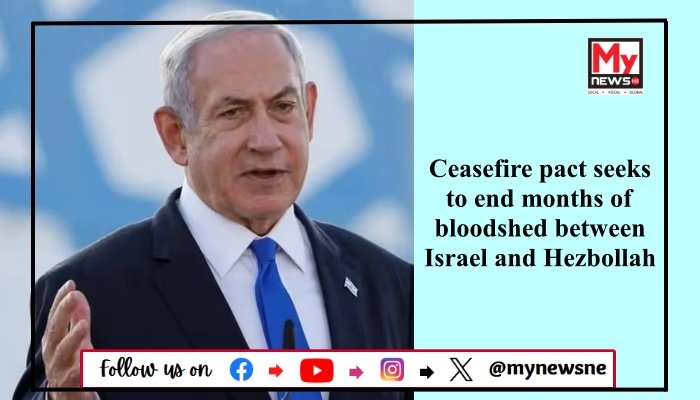Israel and Hezbollah Ceasefire: Fragile Peace Amid Strategic Calculations
International: Israel and Hezbollah have reached a ceasefire agreement, bringing a temporary end to months of intense hostilities that have claimed thousands of lives.
The truce, effective from Tuesday, comes with a stern warning from Israeli Prime Minister Benjamin Netanyahu, who stressed that its continuation hinges on Hezbollah’s compliance in Lebanon.
Netanyahu underscored Israel’s readiness to respond forcefully to any violation of the accord. “With the United States’ full understanding, we maintain complete freedom of military action,” he stated. “If Hezbollah attempts to rearm, rebuild terrorist infrastructure, launch rockets, dig tunnels, or transport weaponry, we will retaliate decisively.”
Netanyahu attributed the ceasefire to several strategic considerations. Key among them is the pressing threat posed by Iran, which he described as Israel’s foremost security challenge. The truce also provides Israel’s military with an opportunity to regroup and address logistical challenges, such as delays in the delivery of advanced weaponry. Netanyahu assured the public that these issues are being resolved, with new, sophisticated arms expected to enhance Israel’s military readiness soon.
Another priority, Netanyahu highlighted, is isolating Hezbollah to weaken Hamas. “By sidelining Hezbollah, we can intensify operations against Hamas and focus on securing the release of hostages held in Gaza,” he stated, emphasizing that the ceasefire does not compromise Israel’s long-term objectives.
The conflict began on October 8 last year, when Hezbollah launched attacks on Israeli-held territories in solidarity with Hamas and Palestinians in Gaza. The situation escalated dramatically, with Israel initiating a large-scale military offensive in mid-September, including ground invasions and targeted strikes against Hezbollah’s leadership. Among the high-profile casualties was Hassan Nasrallah, a founding leader of Hezbollah.
Unconventional tactics, such as explosives hidden in pagers, marked the conflict, resulting in significant injuries and intensifying the humanitarian crisis.
As the ceasefire takes hold, the region remains tense, with both sides closely monitoring developments that could jeopardize the fragile truce. The agreement is seen as a critical moment to prevent further escalation while allowing Israel to realign its strategic priorities in the volatile Middle East landscape.

